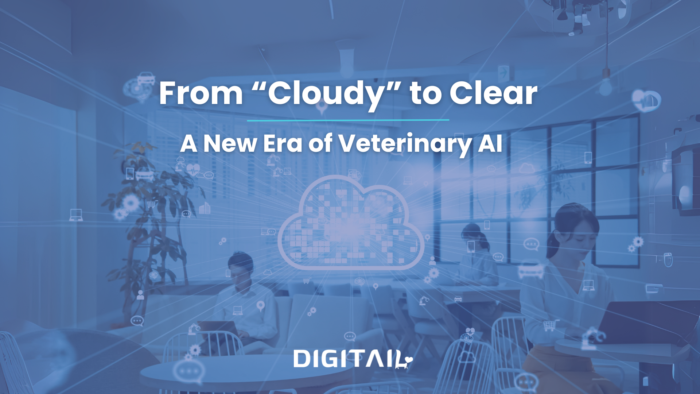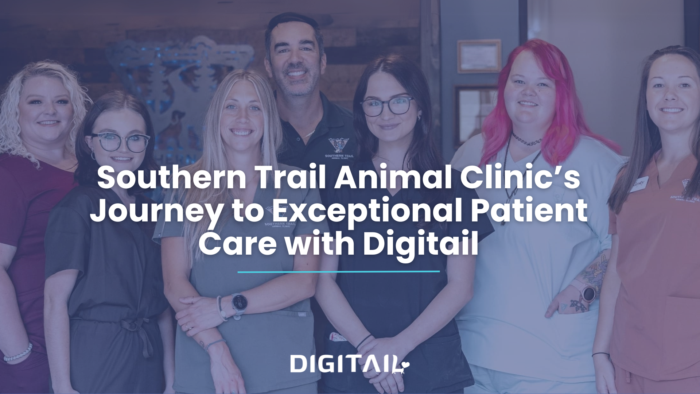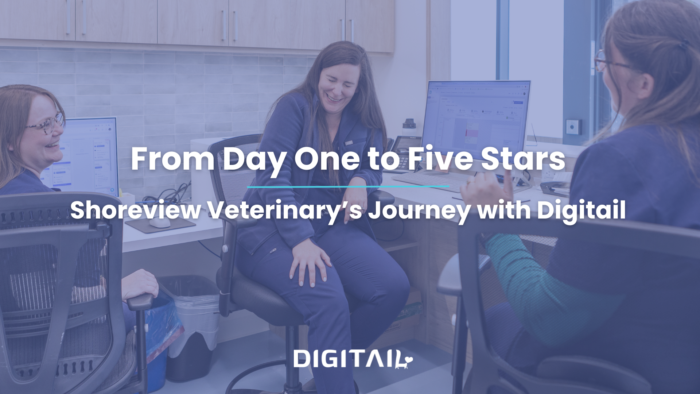
AI: Revolutionizing The Future of Veterinary Medicine
Artificial Intelligence (AI) might seem like a modern marvel, but its roots date back to the 1950s when Alan Turing first posed the question: “Can machines think?” Since then, we’ve been on a journey to answer that question.
The early days of AI were ruled by “if-then” rules, akin to a game of chess with a predictably playing AI. By the 1980s, AI had grown to learn from experiences, somewhat like a toddler. A good example is an email spam filter learning over time which emails to mark as spam.

The game-changer came with the advent of deep learning in the 21st century. Inspired by the human brain’s neuron network, deep learning allows AI systems to make decisions that appear very… well, human.
When we talk about AI today, it’s light-years away from the primitive ‘if-then’ rules of its early years. The shift to machine learning marked a significant leap, with AI systems that could learn from experience. Think about your email spam filter – the more you use it, the better it gets at distinguishing genuine emails from spam.
Changing our world
Today, this form of AI powers everything from Google’s search engine to Siri, your friendly voice assistant, and even autonomous cars. It’s also transforming our homes with smart devices that control our lighting, temperature, and entertainment based on our personal preferences.
Imagine this – you’re trying to navigate through the bustling streets of New York City using Google Maps. It’s not just guiding you – it’s calculating the fastest route based on real-time traffic updates, predicting where congestion might occur, and even suggesting potential parking spots close to your destination.
Or, perhaps you’re shopping on Amazon, and you see a recommendation for a new Stephen King novel, a perfect match to your previous purchases. It’s not a coincidence but the invisible hand of AI subtly integrating into our daily lives, often without us even noticing.
Even during our leisure time, AI is a constant presence. Is Netflix recommending a new series that aligns exactly with your taste? Facebook reminding you of a friend’s birthday or suggesting an event that aligns with your interests? It’s all AI at work.
AI’s Diverse Applications and Its Future
AI’s potential is near limitless, from predicting weather patterns and animal migrations with previously unimaginable accuracy to developing more sustainable cities. By reducing congestion and pollution and intelligently managing power grids, AI is making urban spaces more efficient and eco-friendly.
In the field of sports, AI has become an invaluable tool, offering insights to coaches and athletes by analyzing huge volumes of performance data. This helps refine their strategies and techniques, pushing the boundaries of athletic achievement.
Even in the realm of the arts, AI is making its mark. With AI algorithms composing music, writing poems, and creating art, we’re witnessing the dawn of a new era in creative expression. With tools like DALL-E and Midjourney, anyone can create unique art from a text-based prompt – it’s like having your personal Picasso or Mozart at your fingertips.
In healthcare, AI is poised to redefine our approach to diagnosing and treating diseases. By analyzing vast amounts of data – genetic, lifestyle, environmental -, AI can predict the likelihood of developing specific diseases like heart disease or diabetes, allowing for preventive measures.
In a world where mental health services often fall short of demand, AI-powered chatbots are stepping in to fill the gap. While they cannot replace human therapists, these bots can provide psychological support around the clock, making immediate assistance accessible to those who might not have easy access to mental health services.
Transforming Veterinary Medicine
Like human healthcare, veterinary medicine is also being revolutionized by AI. It’s not just about making quicker diagnoses or more accurate treatments. AI is enhancing every aspect of veterinary practice management, from scheduling appointments and sending out reminders to predicting busier periods.
Artificial Intelligence can streamline the clinical workflow by automating initial patient interactions, analyzing patient history, assisting in diagnoses, recommending suitable tests, and even formulating treatment plans. Moreover, it can translate complex medical jargon into layman’s terms, making client education more effective.
Here’s a closer look at how AI is reshaping the field of veterinary medicine:
- Diagnostic Imaging: AI can identify fractures, tumors, heart disease, and more, enhancing veterinarians’ capabilities for quicker and more accurate diagnoses.
- Computational Pathology: AI helps analyze digital images of samples, diagnosing and predicting disease progression.
- Predictive Analytics: Data is power. AI can predict potential health issues by analyzing various factors.
- Client Education: AI can translate complex medical jargon into simpler terms, improving clients’ understanding and adherence to treatment plans.
- Practice Management: There are almost countless ways that AI can streamline administrative tasks, allowing veterinary staff to focus more on patient care.

AI has the potential to revolutionize numerous aspects of veterinary care, from prescreening and triage to post-visit follow-ups. By generating differential diagnoses and recommending confirmatory testing and treatment plans, it’s streamlining the decision-making process and enhancing efficiency. In addition, AI is also transforming the way patient records are managed, aiding in voice-to-text transcription for smoother documentation and making patient history more accessible.
While the human touch in veterinary care is irreplaceable, AI supports and relieves overburdened veterinary professionals by making the care process faster, more efficient, and highly personalized. Through these advancements, AI significantly contributes to improved patient outcomes and a more efficient healthcare system.

AI isn’t about replacing human skills and intuition; it’s about enhancing them. It’s a tool that, when used effectively, can help us deliver better care to our animal companions and make our world a more sustainable, efficient, and creative place. The future of AI is not just bright – it’s revolutionary.
From computational pathology to predictive analytics and from client education to practice management, AI is revolutionizing veterinary medicine. AI can’t replace the warmth of the human touch or the intuition of a seasoned vet, but it can make their jobs easier and more efficient, leading to better health outcomes for our beloved animal companions.
AI in Veterinary Medicine: Changing the Game
From the AI in our smartphones to the potential it holds in transforming healthcare, AI is a testament to human ingenuity and the power of technology. As we continue to develop and refine AI, we continuously improve how we care for our animal companions. And that’s a future that every care provider and pet lover can be excited about!
Are you curious to know more? Check out the link below to view the full recording of our AI in Vet Med Webinar.



